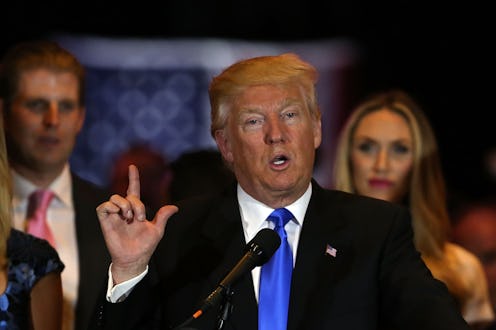News
Independents Are Important In The General Election
The 2016 presidential elections have been an interesting few months, to say the least. We've watched as 17 Republican candidates narrowed down to just one, as Bernie Sanders and Hillary Clinton fought at close margins in primaries around the country, and as voters have had to speak up for their right to vote, often disenfranchised by a system that just isn't working for everyone. In states with closed primaries, like New York, Maryland, and Delaware, independent voters were unable to cast their ballots unless they changed their political affiliation ahead of the primary. In that case, can independents vote in the general election? And what will that mean for the rest of the elections?
Independent voters can vote in the general election and currently 40 percent of American voters identify as independents, according to the Huffington Post. And according to a Quinnipiac University Poll from August 2015, 60 percent of independent voters are not Clinton supporters. So far in the Democratic primaries, Sanders has done well in states that have open primaries, where independents are able to cast a ballot. In fact, he did well in New Hampshire, Michigan, and Wisconsin, where independents were able to vote because the primaries were either open or semi-closed.
After his victory in Rhode Island, Sanders said in his speech, "Democrats should recognize that the ticket with the best chance of winning this November must attract support from independents as well as Democrats. I am proud of my campaign’s record in that regard." As a candidate who has garnered support from very left-leaning Democrats, as well as independents, Sanders makes an important point. The independent vote will be an important one in the general election with such a large population of independent voters, and Clinton just might not be able to get that support.
Even if this is the case, Trump also has a poor favorability rating among independent voters — specifically a -27-percentage-point rating. So will they change their mind come November and vote Trump? The independent vote is especially important in winning swing states, like Ohio, Florida, Virginia, Colorado, and Michigan, and when it comes to the independent vote, it looks like Sanders is the candidate who will do best at beating Trump among this demographic.
Although Clinton has done well in the primaries, especially due to the fact that independent voters have not been able to cast a ballot in closed-primary states, she also hasn't done much to gain their support until now, after Trump's win in Indiana.
